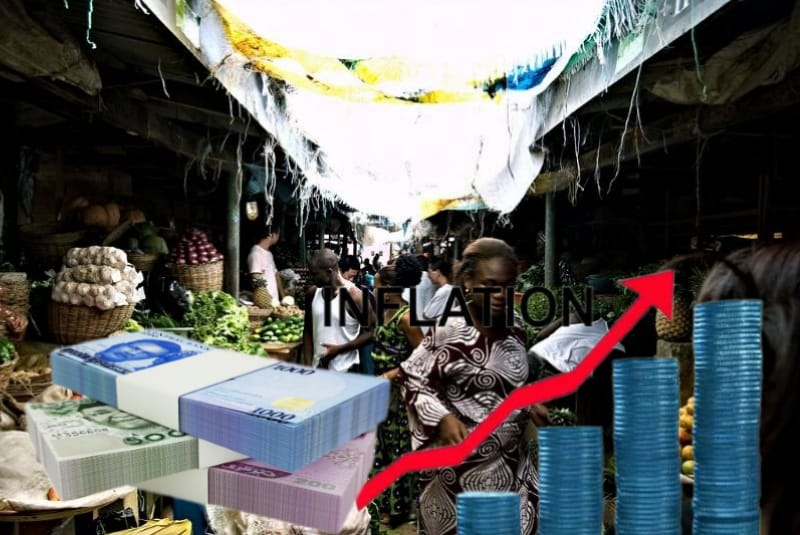Business
UPDATED: Nigeria’s Inflation Rate Declines to 24.48%

Nigeria’s inflation rate has dropped to 24.48%, marking a slight improvement in the nation’s economic indicators amid ongoing financial reforms.
In January 2025, Nigeria’s headline inflation decreased to 24.48 percent year-on-year.
This represents a significant drop from the 34.80 percent headline inflation noted in December 2024.
This information was provided by the National Bureau of Statistics (NBS), as announced by Adeyemi Adeniran, the Statistician-General of the Federation, on Tuesday.
He stated that the Consumer Price Index (CPI), which tracks changes in prices of goods and commodities, decreased to 24.48 percent year-on-year in January.
During a briefing in Abuja, Adeniran explained that urban inflation was at 26.09 percent, while rural inflation reached 22.15 percent.
He noted that the overall prices of goods and services in the country had decreased from the 34.80 percent recorded in December, which was calculated using the old template.
CPI rebasing involves updating the reference year for assessing price levels in a country by altering the basket of goods and services used to measure inflation. This process aims to better mirror current consumer spending habits and ensure that the inflation data accurately represents the present state of the economy.
The Consumer Price Index (CPI) data for the reviewed period showed that rebased food inflation was at 26.08 percent year-on-year in January, marking a decrease from the previous month’s year-on-year figure of 39.84 percent on the food index.
In a similar manner, the rebased core index—which excludes prices from volatile agricultural products and energy—reached 22.59 percent year-on-year in January.
The rebased Consumer Price Index (CPI), as reported by the NBS, represents the present inflationary trends and spending habits of residents in the nation.
